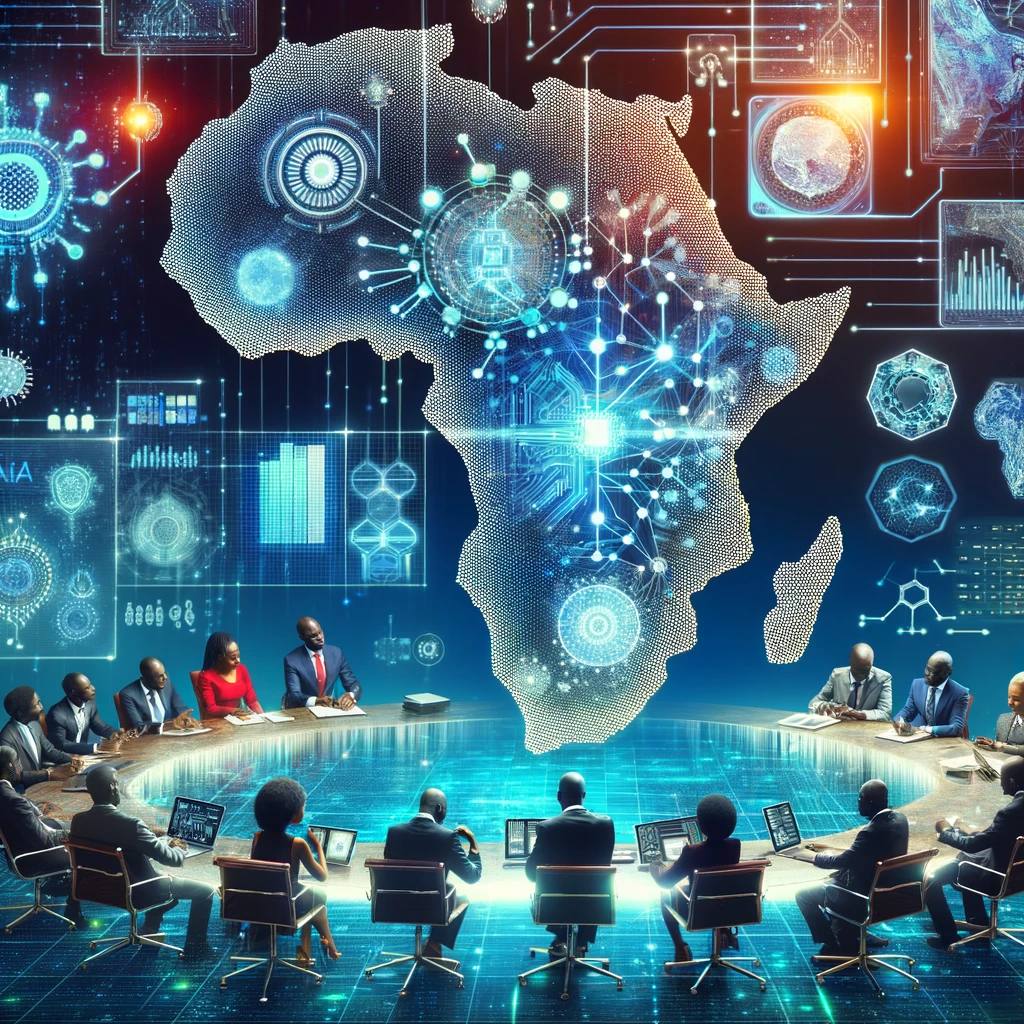Africa is on the cusp of a technological revolution, with artificial intelligence (AI) poised to transform various sectors across the continent. This transformation extends beyond mere technological advancement; it represents a strategic shift, with AI serving as a catalyst for sustainable growth and innovation. A recent report suggests that embracing AI could boost Africa’s economy by an impressive $1.5 trillion, provided African businesses capture 10% of the global AI market. This figure signifies not just economic growth but also the potential of AI to effect real change.
Transformative impact across sectors
AI’s influence is far-reaching, spanning several critical sectors in Africa. In healthcare, AI-powered diagnostic solutions in Rwanda and Ghana are improving medical imaging analysis, aiding in the early detection of diseases like breast cancer and tuberculosis. Companies like Zipline are optimizing drone delivery routes for medical supplies using AI, enhancing access to essential medications in remote areas. This application of AI in healthcare is expected to lead to earlier diagnoses, better patient outcomes, and stronger healthcare systems.
The agricultural sector is witnessing AI as a supportive tool for resource management. In countries like Nigeria and Kenya, startups such as UjuziKilimo and Farmcrowdy are utilizing AI to analyze soil and weather data, providing farmers with personalized advice on crop cultivation. This has led to increased productivity and food security, benefiting smallholder farmers and the wider community.
In the realm of urban development, AI is offering innovative solutions tailored to Africa’s specific needs. South Africa’s eThekwini Municipality in KwaZulu-Natal, for example, has become a data-driven smart city using AI to enhance water and sanitation services.
Financial inclusion is another area where AI is making significant strides. Mobile banking platforms in East Africa, like M-Pesa, are using AI for credit scoring and microloan services, revolutionizing banking in the region and providing financial services to previously unbanked populations.
Microsoft’s role in Africa’s AI journey
Microsoft is playing a pivotal role in this AI revolution across Africa. In Egypt, the company is collaborating with the government and businesses to implement AI solutions for reimagining government services. In Kenya, Microsoft’s partnerships in food and water security and wildlife conservation address climate and sustainability challenges. In South Africa, Microsoft is reshaping public service delivery and addressing complex business and societal challenges through AI.
However, this journey is not without challenges. Africa faces the crucial task of navigating this AI-powered future responsibly, ensuring alignment with human values, societal norms, and the diverse cultures of the continent. Thoughtful regulation and collaboration with relevant stakeholders are essential to ensure that AI solutions are not only technologically advanced but also culturally attuned and genuinely beneficial to African societies.
Towards a sustainable AI future in Africa
As AI usage expands, more African countries are expected to introduce regulations guiding its responsible development and deployment. Adoption of cloud-first policies is crucial for providing the infrastructure needed for AI’s computational demands. Microsoft’s investment in data centers in Cape Town and Johannesburg, along with edge sites and subsea cables, demonstrates this commitment.
Microsoft’s strategy extends beyond technology development to include capacity building and education. Through skilling and employability programs, Microsoft has helped upskill over four million young people across Africa. The company’s AI Skills Initiative offers courses to help workers harness the power of AI.
Collaborative partnerships with governments and policy stakeholders are vital for tailoring policy interventions to the specific needs of African countries. Microsoft’s multidisciplinary teams work to integrate local insights into technological initiatives, fostering solutions that are effective and contextually relevant.
Africa’s AI revolution represents a future brimming with opportunities. With responsible regulation, collaboration, and a commitment to ethical AI, the continent is poised to unlock a future that is more connected, empowered, and forward-looking.





